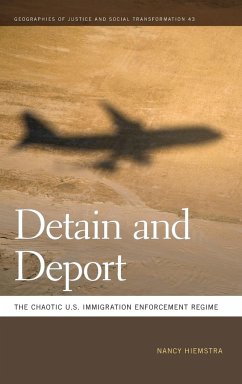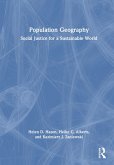Detention and deportation are keystones of contemporary immigration enforcement policy around the world, typically unquestioned as state responses to undocumented human movement across borders. The use of these practices is framed in public, political, and academic discourse by a particular spatiotemporal logic. Detention is presented as the physical containment of unwanted immigrants, and deportation as the end of immigrants' territorial violation. In other words, the logic behind detention and deportation is state territorialization and implies the enforcement of a strict territorial break in terms of membership and belonging. Detain and Deport refutes that logic. Nancy Hiemstra argues, instead, for the reconceptualization of detention and deportation as practices that create spatiotemporal linkages across state borders. Reframing these practices as inherently transnational means reconfiguring punitive state power not in terms of an enforced disconnection but instead in terms of an enforced connection between peoples and places on opposite--even nonproximate--sides of the border. State power, then, is not necessarily traced to partition, as existing literature seems to indicate through a focus on border militarization and territorialization. In making this argument, Hiemstra employs a groundbreaking methodological approach to the study of policy and state power: transnational ethnography. Transnational ethnography emphasizes research in countries of migrant origin to study the geopolitical reverberations of immigration enforcement policies in destination countries.
Hinweis: Dieser Artikel kann nur an eine deutsche Lieferadresse ausgeliefert werden.
Hinweis: Dieser Artikel kann nur an eine deutsche Lieferadresse ausgeliefert werden.








